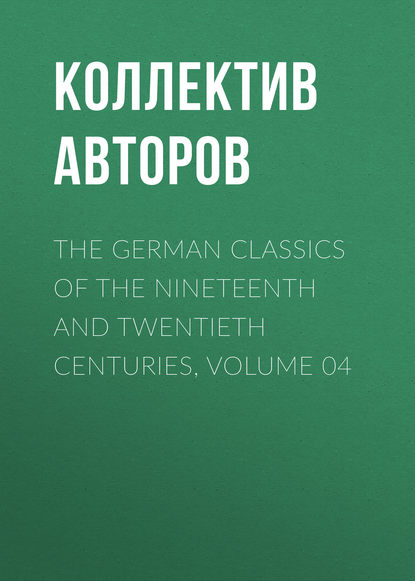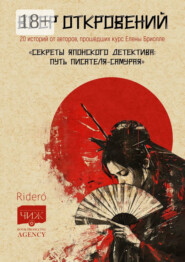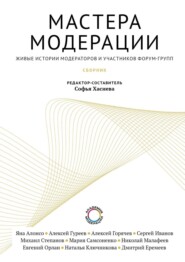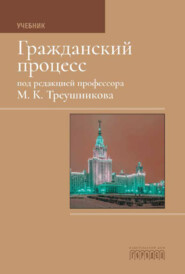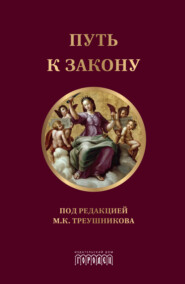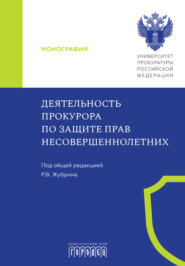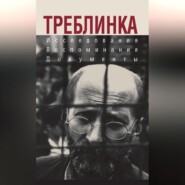По всем вопросам обращайтесь на: info@litportal.ru
(©) 2003-2024.
✖
The German Classics of the Nineteenth and Twentieth Centuries, Volume 04
Настройки чтения
Размер шрифта
Высота строк
Поля
After a roving existence of years, during which he lived in Vienna, Munich, Prague and London, he made a settled home in Dresden. Here he had an enviable place in the very considerable literary and artistic group, and led an existence of almost suspiciously "reasonable" well-being, from a Romantic view-point. The "dramatic evenings" at his home, in which he read plays aloud before a brilliant gathering, were a feature of social life. For seventeen years he had an influential position as "dramaturg" of the Royal Theatre, it being his duty to pass on plays to be performed and to decide upon suitable actors for the parts.
During his long residence in Dresden Tieck produced a very large number of short stories (Novellen) which had a decided vogue, though they differ widely from his earlier writings in dealing with real, contemporary life.
It is pleasant to record that the evening of Tieck's long life was made secure from anxieties by a call to Berlin from Friedrich Wilhelm IV., the "Romantic king." His last eleven years were spent there in quiet and peace, disturbed only by having to give dramatic readings before a self-sufficient court circle which was imperfectly equipped for appreciating the merits of Tieck's performances.
The early Romantic movement found its purest expression in the person and writings of Friedrich von Hardenberg, better known under his assumed literary name Novalis (1772-1801). Both his father, Baron von Hardenberg (chief director of the Saxon salt-works), and his mother belonged to the Moravians, that devoted group of mystical pietists whose sincere consecration to the things of the spirit has achieved a deathless place in the annals of the religious history of the eighteenth century, and, more particularly, determined the beginnings and the essential character of the world-wide Methodist movement. His gentle life presents very little of dramatic incident: he was a reserved, somewhat unsocial boy, greatly devoted to study and to the reading of poetry. He was given a most thorough education, and, while completing his university career, became acquainted with Friedrich Schlegel, and remained his most intimate friend. He also came to know Fichte, and eagerly absorbed his Doctrine of Science. A little later he came into close relations with Wilhelm Schlegel and Tieck in Jena. He experienced a seraphic love for a delicate girl of thirteen, whose passing away at the age of fifteen served to transport the youth's interests almost exclusively to the invisible world: "Life is a sickness of the spirit, a passionate Doing." His chief conversation lay in solitude, in seeking for a mystic inner solution of the secrets of external nature. He loved to discourse on these unseen realms, and to create an ideal connection between them all. The testimony of his friend Tieck, who in company with Friedrich Schlegel edited his works in a spirit of almost religious piety, runs: "The common life environed him like some tale of fiction, and that realm which most men conceive as something far and incomprehensible was the very Home of his Soul." He was not quite twenty-nine years old at the time of his peaceful death, which plunged the circle of his Romantic friends into deepest grief.
The envelope of his spiritual nature was so tenuous that he seemed to respond to all the subtler influences of the universe; a sensitive chord attuned to poetic values, he appeared to exercise an almost mediumistic refraction and revelation of matters which lie only in the realm of the transcendental—
"Weaving about the commonplace of things
The golden haze of morning's blushing glow."
In reading Novalis, it is hardly possible to discriminate between discourse and dreaming; his passion was for remote, never-experienced things—
"Ah, lonely stands, and merged in woe,
Who loves the past with fervent glow!"
His homesickness for the invisible world became an almost sensuous yearning for the joys of death.
In the first volume of the Athenæum (1798) a place of honor was given to his group of apothegms, Pollen (rather an unromantic translation for "Blüthenstaub"); these were largely supplemented by materials found after his death, and republished as Fragments. In the last volume of the same journal (1800) appeared his Hymns to Night. Practically all of his other published works are posthumous: his unfinished novel, Henry of Ofterdingen; a set of religious hymns; the beginnings of a "physical novel," The Novices at Saïs.
Novalis's aphoristic "seed-thoughts" reveal Fichte's transcendental idealistic philosophy as the fine-spun web of all his observations on life. The external world is but a shadow; the universe is in us; there, or nowhere, is infinity, with all its systems, past or future; the world is but a precipitate of human nature.
The Novices at Saïs, a mystical contemplation of nature reminding us of the discourses of Jakob Böhme, has some suggestion of the symbolistic lore of parts of Goethe's Wilhelm Meister, and proves a most racking riddle to the uninitiated. The penetration into the meaning of the Veiled Image of Nature is attempted from the point of view that all is symbolic: only poetic, intuitive souls may enter in; the merely physical investigator is but searching through a charnel-house. Nature, the countenance of Divinity, reveals herself to the childlike spirit; to such she will, at her own good pleasure, disclose herself spontaneously, though gradually. This seems to be the inner meaning of the episodic tale, Hyacinth and Rose-Blossom. The rhythmic prose Hymns to Night exhale a delicate melancholy, moving in a vague haze, and yet breathing a peace which comes from a knowledge of the deeper meanings of things, divined rather than experienced. Their stealing melody haunts the soul, however dazed the mind may be with their vagueness, and their exaltation of death above life. In his Spiritual Poems we feel a simple, passionate intensity of adoration, a yearning sympathy for the hopeless and the heavy-laden; in their ardent assurance of love, peace, and rest, they are surely to be reckoned among the most intimate documents in the whole archives of the "varieties of religious experience."
The unfinished novel Henry of Ofterdingen reaches a depth of obscurity which is saved from absurdity only by the genuinely fervent glow of a soul on the quest for its mystic ideals: "The blue flower it is that I yearn to look upon!" No farcical romance of the nursery shows more truly the mingled stuff that dreams are made on, yet the intimation that the dream is not all a dream, that the spirit of an older day is symbolically struggling for some expression in words, gave it in its day a serious importance at which our own age can merely marvel. It brings no historical conviction; it is altogether free from such conventional limits as Time and Space. Stripped of its dreamy diction, there is even a tropical residue of sensuousness, to which the English language is prone to give a plainer name. It develops into a fantastic mélange which no American mind can possibly reckon with; what its effect would be upon a person relegated to reading it in close confinement, it would not be safe to assert, but it is quite certain that "this way madness lies."
To generalize about the Romantic movement, may seem about as practical as to attempt to make a trigonometrical survey of the Kingdom of Dreams. No epoch in all literary history is so hopelessly entangled in the meshes of subtle philosophical speculation, derived from the most complex sources. To deal with the facts of classic art, which is concerned with seeking a clearly-defined perfection, is a simple matter compared with the unbounded and undefined concepts of a school which waged war upon "the deadliness of ascertained facts" and immersed itself in vague intimations of glories that were to be. Its most authorized exponent declared it to be "the delineation of sentimental matter in fantastic form." A more elaborated authoritative definition is given in the first volume of the Athenæum:
"Romantic poetry is a progressive universal-poetry. Its aim is not merely to reunite all the dispersed classes of poetry, and to place poetry in touch with philosophy and rhetoric; it aims and ought to aim to mingle and combine poetry and prose, genius and criticism, artistic and natural poetry; to make poetry lively and social, to make life and society poetic; to poetize wit, to saturate all the forms of art with worthy materials of culture and enliven them by the sallies of humor. It embraces everything that is poetic, from the greatest and most inclusive system of art, to the sigh, the kiss, that the poetic child utters in artless song. Other classes of poetry are complete, and may now be exhaustively dissected; romantic poetry is still in process of becoming—in fact this is its chief characteristic, that it forever can merely become, but never be completed. It can never be exhausted by any theory, and only an intuitive criticism could dare to attempt to characterize its ideals. It alone is endless, as it alone is free, and asserts as its first law that the whim of the poet tolerates no law above itself. Romantic poetry is the only sort which is more than a class, and, as it were, the art of poetry itself."
We may in part account for Romanticism by recalling that it was the product of an age which was no longer in sympathy with its own tasks, an age of political miseries and restrained powers, which turned away from its own surroundings and sought to be free from all contact with them, striving to benumb its sensations by an auto-intoxication of dreams.
Romanticism is built upon the imposing corner-stone of the unique importance of the Individual: "To become God, to be man, to develop one's own being, these are expressions for the same thing." As personality is supreme, it is natural that there should follow a contempt for the mediocrity of current majorities, standards and opinions. It abhorred universal abstractions, as opposed to the truth and meaning of individual phenomena. It stoutly believed in an inexpugnable right to Illusions, and held clarity and earnestness to be foes of human happiness. "The poem gained great applause, because it had so strange, so well-nigh unintelligible a sound. It was like music itself, and for that very reason attracted so irresistibly. Although the hearers were awake, they were entertained as though in a dream."
Hence a purely lyric attitude toward life, which was apprehended only on transcendent, musical valuations. Poetry was to be the heart and centre of actual living; modern life seemed full of "prose and pettiness" as compared with the Middle Ages; it was the doctrine of this Mary in the family of Bethany to leave to the Martha of dull externalists the care of many things, while she "chose the better part" in contemplative lingering at the vision of what was essentially higher. A palpitant imagination outranks "cold intelligence;" sensation, divorced from all its bearings or functions, is its own excuse for being. Of responsibility, hardly a misty trace; realities are playthings and to be treated allegorically.
The step was not a long one to the thesis that "disorder and confusion are the pledge of true efficiency"—such being one of the "seed-thoughts" of Novalis. In mixing all species, Romanticism amounts to unchartered freedom, "die gesunde, kräftige Ungezogenheit." It is no wonder that so many of its literary works remain unfinished fragments, and that many of its exponents led unregulated lives.
"Get you irony, and form yourself to urbanity" is the counsel of Friedrich Schlegel. The unbridgeable chasm between Ideal and Life could not be spanned, and the baffled idealist met this hopelessness with the shrug of irony. The every-day enthusiasm of the common life invited only a sneer, often, it is true, associated with flashing wit.
Among its more pleasing manifestations, Romanticism shows a remarkable group of gifted, capable women, possibly because this philosophy of intuition corresponds to the higher intimations of woman's soul. Other obvious fruits of the movement were the revival of the poetry and dignity of the Middle Ages, both in art and life—that colorful, form-loving musical era which the Age of Enlightenment had so crassly despised. That this yearning for the beautiful background led to reaction in politics and religion is natural enough; more edifying are the rich fruits which scholarship recovered when Romanticism had directed it into the domains of German antiquity and philology, and the wealth of popular song. In addition to these, we must reckon the spoils which these adventurers brought back from their quest into the faery lands of Poetry in southern climes.
When all is said, and in spite of Romanticism's weak and unmanly quitting of the field of duty, in spite of certain tendencies to ignore and supersede the adamant foundations of morality upon which the "humanities" as well as society rest, one cannot quite help hoping that somehow good may be the final hint of it all. Like Mary Stuart, it is, at least, somewhat better than its worst repute, as formulated by its enemies. Estimates change; even the excellent Wordsworth was held by the English reviewers to be fantastic and vague in his Ode to Duty. We should not forget that the most shocking pronouncements of the Romanticists were uttered half-ironically, to say the least. After its excursion into the fantastic jungle of Romanticism, the world has found it restful and restorative, to be sure, to return to the limited perfection of the serene and approved classics; yet perchance it is the last word of all philosophy that the astounding circumambient Universe is almost entirely unperceived by our senses and reasoning powers.
Let us confess, and without apology, that the country which claims a Hawthorne, a Poe, and a youthful Longfellow, can never surrender unconditionally its hold upon the "True Romance:"
"Through wantonness if men profess
They weary of Thy parts,
E'en let them die at blasphemy
And perish with their arts;
But we that love, but we that prove
Thine excellence august,
While we adore discover more
Thee perfect, wise, and just….
A veil to draw 'twixt God His Law
And Man's infirmity;
A shadow kind to dumb and blind
The shambles where we die;
A sum to trick th' arithmetic
Too base of leaguing odds;
The spur of trust, the curb of lust—
Thou handmaid of the Gods!"
AUGUST WILHELM SCHLEGEL
* * * * *
LECTURES ON DRAMATIC ART[11 - Permission The Macmillan Co., New York, and G. Bell & Sons, Ltd., London.] (1809)
TRANSLATED BY JOHN BLACK
LECTURE XXII
Comparison of the English and Spanish Theatres—Spirit of the Romantic Drama—Shakespeare—His age and the circumstances of his Life.
In conformity with the plan which we laid down at the first, we shall now proceed to treat of the English and Spanish theatres. We have been, on various occasions, compelled in passing to allude cursorily, sometimes to the one and sometimes to the other, partly for the sake of placing, by means of contrast, many ideas in a clearer light, and partly on account of the influence which these stages have had on the theatres of other countries. Both the English and Spaniards possess a very rich dramatic literature, both have had a number of prolific and highly talented dramatists, among whom even the least admired and celebrated, considered as a whole, display uncommon aptitude for dramatic animation and insight into the essence of theatrical effect. The history of their theatres has no connection with that of the Italians and French, for they developed themselves wholly out of the abundance of their own intrinsic energy, without any foreign influence: the attempts to bring them back to an imitation of the ancients, or even of the French, have either been attended with no success, or not been made till a late period in the decay of the drama. The formation of these two stages, again, is equally independent of each other; the Spanish poets were altogether unacquainted with the English; and in the older and most important period of the English theatre I could discover no trace of any knowledge of Spanish plays (though their novels and romances were certainly known), and it was not till the time of Charles II. that translations from Calderon first made their appearance.
So many things among men have been handed down from century to century and from nation to nation, and the human mind is in general so slow to invent, that originality in any department of mental exertion is everywhere a rare phenomenon. We are desirous of seeing the result of the efforts of inventive geniuses when, regardless of what in the same line has elsewhere been carried to a high degree of perfection, they set to work in good earnest to invent altogether for themselves; when they lay the foundation of the new edifice on uncovered ground, and draw all the preparations, all the building materials, from their own resources. We participate, in some measure, in the joy of success, when we see them advance rapidly from their first helplessness and need to a finished mastery in their art. The history of the Grecian theatre would afford us this cheering prospect could we witness its rudest beginnings, which were not preserved, for they were not even committed to writing; but it is easy, when we compare Æschylus and Sophocles, to form some idea of the preceding period. The Greeks neither inherited nor borrowed their dramatic art from any other people; it was original and native, and for that very reason was it able to produce a living and powerful effect. But it ended with the period when Greeks imitated Greeks; namely, when the Alexandrian poets began learnedly and critically to compose dramas after the model of the great tragic writers. The reverse of this was the case with the Romans; they received the form and substance of their dramas from the Greeks; they never attempted to act according to their own discretion, or to express their own way of thinking; and hence they occupy so insignificant a place in the history of dramatic art. Among the nations of modern Europe, the English and Spaniards alone (for the German stage is but forming) possess as yet a theatre entirely original and national, which, in its own peculiar shape, has arrived at maturity.
Those critics who consider the authority of the ancients, as models, to be such that in poetry, as in all the other arts, there can be no safety out of the pale of imitation, affirm that, as the nations in question have not followed this course, they have brought nothing but irregular works on the stage, which, though they may possess occasional passages of splendor and beauty, must yet, as a whole, be forever reprobated as barbarous and wanting in form. We have already, in the introductory part of these Lectures, stated our sentiments generally on this way of thinking; but we must now examine the subject somewhat more closely.
If the assertion be well founded, all that distinguishes the works of the greatest English and Spanish dramatists, a Shakespeare and a Calderon, must rank them far below the ancients; they could in no wise be of importance for theory, and would at most appear remarkable, on the assumption that the obstinacy of these nations in refusing to comply with the rules may have afforded a more ample field to the poets to display their native originality, though at the expense of art. But even this assumption, on a closer examination, appears extremely questionable. The poetic spirit requires to be limited, that it may move with a becoming liberty within its proper precincts, as has been felt by all nations on the first invention of metre; it must act according to laws derivable from its own essence, otherwise its strength will evaporate in boundless vacuity.
The works of genius cannot therefore be permitted to be without form; but of this there is no danger. However, that we may answer this objection of want of form, we must understand the exact meaning of the term "form," since most critics, and more especially those who insist on a stiff regularity, interpret it merely in a mechanical, and not in an organical sense. Form is mechanical when, through external force, it is imparted to any material merely as an accidental addition without reference to its quality; as, for example, when we give a particular shape to a soft mass that it may retain the same after its induration. Organical form, again, is innate; it unfolds itself from within, and requires its determination contemporaneously with the perfect development of the germ. We everywhere discover such forms in nature throughout the whole range of living powers, from the crystallization of salts and minerals to plants and flowers, and from these again to the human body. In the fine arts, as well as in the domain of nature, the supreme artist, all genuine forms are organical, that is, determined by the quality of the work. In a word, the form is nothing but a significant exterior, the speaking physiognomy of each thing, which, as long as it is not disfigured by any destructive accident, gives a true evidence of its hidden essence.
Hence it is evident that the spirit of poetry, which, though imperishable, migrates, as it were, through different bodies, must, so often as it is newly born in the human race, mold to itself, out of the nutrimental substance of an altered age, a body of a different conformation. The forms vary with the direction taken by the poetical sense; and when we give to the new kinds of poetry the old names, and judge of them according to the ideas conveyed by these names, the application which we make of the authority of classical antiquity is altogether unjustifiable. No one should be tried before a tribunal to which he is not amenable. We may safely admit that most of the English and Spanish dramatic works are neither tragedies nor comedies in the sense of the ancients; they are romantic dramas. That the stage of a people in its foundation and formation, who neither knew nor wished to know anything of foreign models, will possess many peculiarities, and not only deviate from, but even exhibit a striking contrast to, the theatres of other nations who had a common model for imitation before their eyes, is easily supposable, and we should only be astonished were it otherwise.
But when in two nations, differing so widely as the English and Spanish in physical, moral, political, and religious respects, the theatres (which, without being known to one another, arose about the same time) possess, along with external and internal diversities, the most striking features of affinity, the attention even of the most thoughtless cannot but be turned to this phenomenon; and the conjecture will naturally occur that the same, or, at least, a kindred principle must have prevailed in the development of both. This comparison, however, of the English and Spanish theatre, in their common contrast with every dramatic literature which has grown up out of an imitation of the ancients, has, so far as we know, never yet been attempted. Could we raise from the dead a countryman, a contemporary and intelligent admirer of Shakespeare, and another of Calderon, and introduce to their acquaintance the works of the poet to which in life they were strangers, they would both, without doubt, considering the subject rather from a national than a general point of view, enter with difficulty into the above idea and have many objections to urge against it. But here a reconciling criticism[12 - This appropriate expression was, if we mistake not, first used by M. Adam Müller in his Lectures on German Science and Literature. If, however, he gives himself out as the inventor of the thing itself, he is, to use the softest word, in error. Long before him other Germans had endeavored to reconcile the contrarieties of taste of different ages and nations, and to pay due homage to all genuine poetry and art. Between good and bad, it is true, no reconciliation is possible.] must step in; and this, perhaps, may be best exercised by a German, who is free from the national peculiarities of either Englishmen or Spaniards, yet by inclination friendly to both, and prevented by no jealousy from acknowledging the greatness which has been earlier exhibited in other countries than his own.
The similarity of the English and Spanish theatres does not consist merely in the bold neglect of the Unities of Place and Time, or in the commixture of comic and tragic elements; that they were unwilling or unable to comply with the rules and with right reason (in the meaning of certain critics these terms are equivalent), may be considered as an evidence of merely negative properties. The ground of the resemblance lies far deeper, in the inmost substance of the fictions and in the essential relations through which every deviation of form becomes a true requisite, which, together with its validity, has also its significance. What they have in common with each other is the spirit of the romantic poetry, giving utterance to itself in a dramatic shape. However, to explain ourselves with due precision, the Spanish theatre, in our opinion, down to its decline and fall in the commencement of the eighteenth century, is almost entirely romantic; the English is completely so in Shakespeare alone, its founder and greatest master; but in later poets the romantic principle appears more or less degenerated, or is no longer perceivable, although the march of dramatic composition introduced by virtue of it has been, outwardly at least, pretty generally retained. The manner in which the different ways of thinking of the two nations, one a northern and the other a southern, have been expressed; the former endowed with a gloomy, the latter with a glowing imagination; the one nation possessed of a scrutinizing seriousness disposed to withdraw within itself, the other impelled outwardly by the violence of passion—the mode in which all this has been accomplished will be most satisfactorily explained at the close of this section, when we come to institute a parallel between Shakespeare and Calderon, the only two poets who are entitled to be called great.
Of the origin and essence of the romantic I treated in my first Lecture, and I shall here, therefore, merely briefly mention the subject. The ancient art and poetry rigorously separate things which are dissimilar; the romantic delights in indissoluble mixtures; all contrarieties—nature and art, poetry and prose, seriousness and mirth, recollection and anticipation, spirituality and sensuality, terrestrial and celestial, life and death, are by it blended in the most intimate combination. As the oldest law-givers delivered their mandatory instructions and prescriptions in measured melodies; as this is fabulously ascribed to Orpheus, the first softener of the yet untamed race of mortals; in like manner the whole of ancient poetry and art is, as it were, a rhythmical nomos (law), a harmonious promulgation of the permanently established legislation of a world submitted to a beautiful order and reflecting in itself the eternal images of things. Romantic poetry, on the other hand, is the expression of the secret attraction to a chaos which lies concealed in the very bosom of the ordered universe, and is perpetually striving after new and marvelous births; the life-giving spirit of primal love broods here anew on the face of the waters. The former is more simple, clear, and like to nature in the self-existent perfection of her separate works; the latter, notwithstanding its fragmentary appearance, approaches nearer to the secret of the universe. For Conception can only comprise each object separately, but nothing in truth can ever exist separately and by itself; Feeling perceives all in all at one and the same time.
Respecting the two species of poetry with which we are here principally occupied, we compared the ancient Tragedy to a group in sculpture, the figures corresponding to the characters, and their grouping to the action; and to these two, in both productions of art, is the consideration exclusively directed, as being all that is properly exhibited. But the romantic drama must be viewed as a large picture, where not merely figure and motion are exhibited in larger, richer groups, but where even all that surrounds the figures must also be portrayed; where we see not merely the nearest objects, but are indulged with the prospect of a considerable distance; and all this under a magical light which assists in giving to the impression the particular character desired.
Such a picture must be bounded less perfectly and less distinctly than the group; for it is like a fragment cut out of the optic scene of the world. However, the painter, by the setting of his foreground, by throwing the whole of his light into the centre, and by other means of fixing the point of view, will learn that he must neither wander beyond the composition nor omit anything within it.





